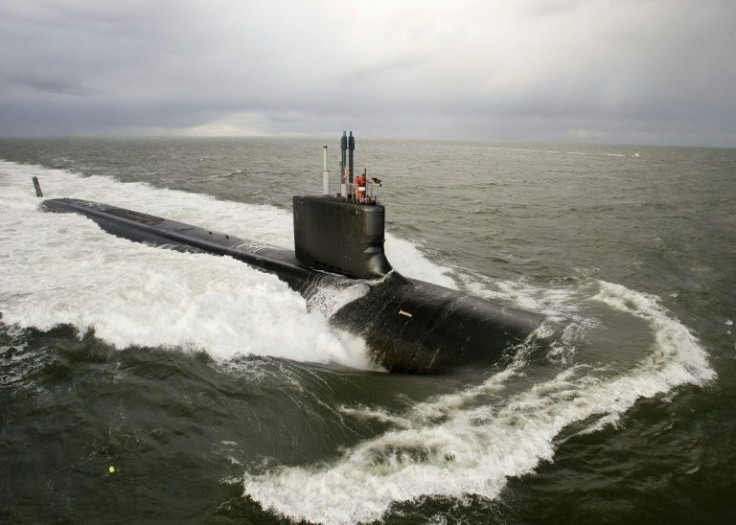Australia's Nuclear Submarine Deal With US In Jeopardy As Senators Cite More Bottlenecks
KEY POINTS
- Australia is expecting to buy at least eight nuclear-powered submarines under AUKUS
- But two U.S. senators think a "sober assessment of the facts" is needed
- It is the first time members have expressed significant misgivings about AUKUS
Two key U.S. lawmakers have expressed concerns regarding the supply of nuclear submarines to Australia under the troubled AUKUS trilateral pact, warning that the deal could stress America's shipbuilding capacity to a "breaking point" while ignoring "contemporary realities," according to Breaking Defense.
"Over the past year, we have grown more concerned about the state of the U.S. submarine industrial base as well as its ability to support the desired AUKUS SSN [nuclear sub] end state," Sens. Jack Reed, (D-R.I.), and James Inhofe, (R-Okla.), noted in a Dec. 21 letter sent to the White House, the outlet reported.
The trilateral AUKUS deal refers to the security pact for the Indo-Pacific region announced in September 2021 between the U.S. the U.K. and Australia. The key highlight of the deal is the sharing of highly sensitive nuclear submarine technology with Australia, enabling Canberra to receive American Virginia-class subs.
Now the U.S. lawmakers' intervention comes just months before the Australian government unveils its submarine plan. It is the first time members of either party have expressed significant misgivings about AUKUS, as per Sydney Morning Herald. The pact has so far enjoyed strong support in the U.S.
"We believe current conditions require a sober assessment of the facts to avoid stressing the U.S. submarine industrial base to the breaking point," the senators added in their letter.
The senators' concerns highlight that American shipyards are not able to meet the needs of the U.S. Navy and do not have the capacity to build submarines for Australia. Therefore, providing the advanced Virginia-class submarines to Australia would "make the U.S. Navy less capable of meeting sovereign wartime and peacetime requirements."
The lawmakers urged the Biden administration to ensure that the AUKUS negotiations do not diminish sovereign U.S. national security capabilities while building strategic partnerships with Australia and the United Kingdom.
"Make no mistake, we recognize the strategic value of having one of our closest allies operating a world-class nuclear navy could provide in managing long-term competition with an increasingly militaristic China." the senators said, further adding that "such a goal will take decades to achieve, and we cannot simply ignore contemporary realities in the meantime."
Both Reed and Inhofe were part of the Senate Armed Services Committee, a key congressional panel overseeing the Pentagon. Although Inhofe has since retired, Reed remains the SASC chairman. This makes him one of the most important people on defense issues, Breaking Defense added in its report.
The nuclear-powered Virginia class is a cruise missile fast-attack submarine designed for naval and irregular warfare with the ability to carry out strikes, special surveillance and reconnaissance operations.
Australia is expecting to buy at least eight nuclear-powered submarines from either the U.S. or the U.K. under the deal. However, considering the capacity gap, experts indicate that Australia has close to zero chance of getting a submarine from the U.S. under AUKUS before 2040, as Washington struggles to meet its own needs.
Deliveries of the submarine have lagged despite consistent funding to help prop up the supplier base and workforce development initiatives.
However, the AUKUS pact has been in trouble since it began. Australia's decision in favor of the U.S. Virginia-class submarines came after it scrapped a $90 billion submarine deal with Paris, which France described as a "stab in the back."
As Australia remains a non-nuclear power, Canberra's decision to acquire nuclear-powered submarines has been questioned by China. Indonesia, which is a close Australian ally in the region, has also expressed its misgivings regarding the deal.
Meanwhile, Australia's former Prime Minister Malcolm Turnbull has argued that without the ability to maintain or sustain a naval nuclear propulsion system, the submarines cannot be operated without U.S. supervision, which essentially means an abandonment of Australian sovereignty.

© Copyright IBTimes 2025. All rights reserved.






















